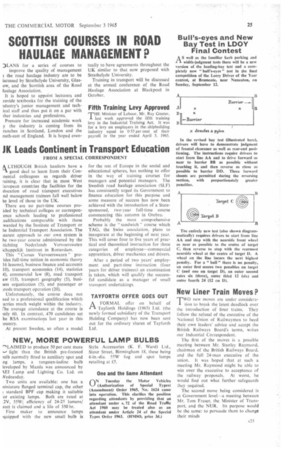JIC Leads Continent in Transport Education
Page 27

If you've noticed an error in this article please click here to report it so we can fix it.
FROM A SPECIAL CORRESPONDENT LTHOUGH British hauliers have a good deal to learn from their Con,nental colleagues as regards driver raining, it is clear that in most West :uropean countries the facilities for the &cation of road transport executives nd management trainees fall well below be level of those in the UK.
There are no part-time courses proided by technical colleges or corresponence schools leading to professional Lualifications comparable with those warded by the Institute of Transport or lie Industrial Transport Association. The iearest approach to our own system is he two-year course administered by the
• tichting Nedcrlands Very oersweten ichappelijk lnstitout in Rotterdam.
This "Cursus Vervoerswezen" proides full-time tuition in economic theory 16 lessons), business finance and accounts Ili)), transport economics (14), statistics 4), commercial law (8), road transport aw (13), transport geography (5), busiless organization (5). and passenger or ;oods transport operation (20).
Unfortunately, the course does not ead to a professional qualification which arries much weight within the industry. Elie average attendance at the course is )nly 60. In contrast, 470 candidates sat he RSA examinatious last year in this ountry.
At present Sweden, so often a model for the rest of Europe in the social and educational spheres, has nothing to offer in the way of training courses for managers and potential managers. The Swedish road haulage association (SLF) has consistently urged its Government to finance education for this purpose and some measure of success has now been achieved with the introduction of a Statesponsored, two-year full-time course commencing this autumn in Orebro.
Probably the most comprehensive scheme is the " sandwich " course which TAG, the Swiss association, plans to inaugurate at the beginning of next year. This will cover four to five years of practical and theoretical instruction for three categories of employee—commercial apprentices, driver mechanics and drivers.
After a period of two years' employment and part-time instruction (four years for driver trainees) an examination is taken, which will qualify the successful candidate as a manager of small transport undertakings.




























































































































































